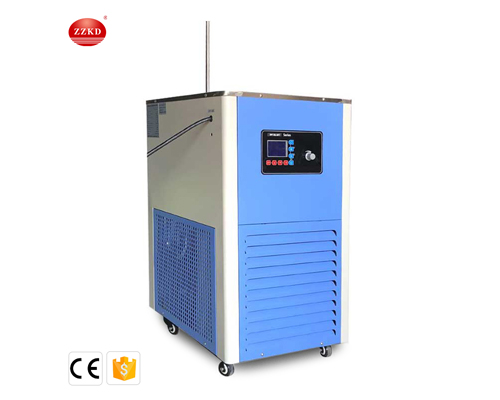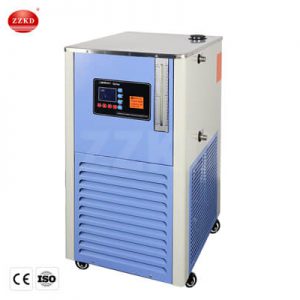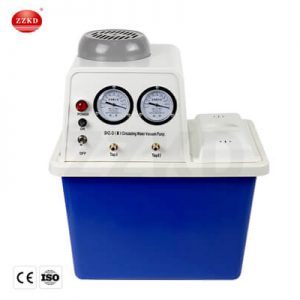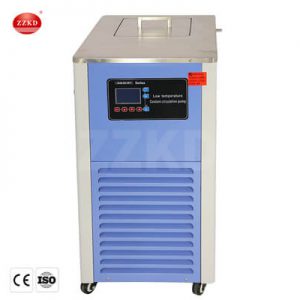Refrigerated and heated circulating water baths introduction
Refrigerated and heated circulating water baths are scientific instruments used in laboratories to maintain a consistent temperature for experiments or samples. These baths are designed to circulate water at a specified temperature range and can be used for a variety of applications, including biochemical, microbiological, and molecular biology experiments.
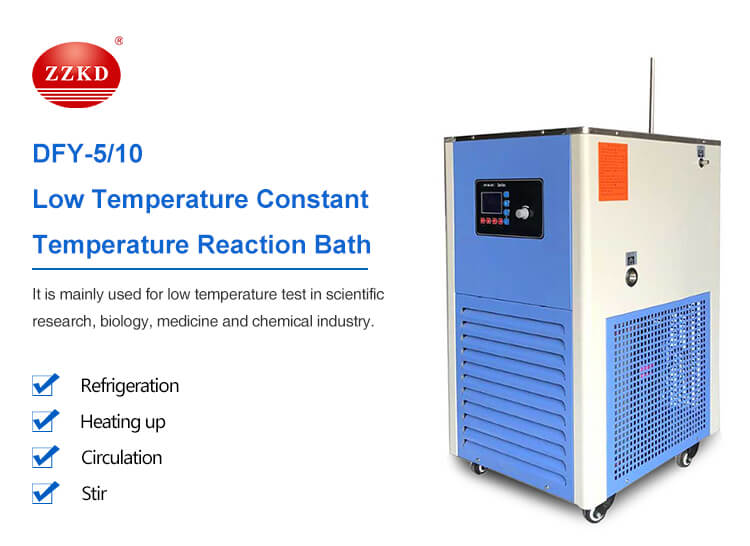
Refrigerated circulating water baths are used to cool samples to below ambient temperature. They typically consist of a chamber that is filled with water, and a refrigeration system that circulates chilled liquid through a heat exchanger in the bath to maintain the desired temperature. These types of water baths are commonly used for experiments that require low temperatures, such as DNA sequencing or enzyme assays.
Heated circulating water baths, on the other hand, are used to maintain samples at a higher temperature range. They work by circulating heated water through the bath and can be used for experiments that require a stable temperature, such as culturing cells or incubating reactions.
Both refrigerated and heated circulating water baths come in a variety of sizes and configurations, with different temperature ranges and capacities. Some baths have additional features, such as programmable temperature controllers, digital displays, or stirring capabilities, that can enhance their functionality and versatility.
Refrigerated and heated circulating water baths Features:
Refrigerated and heated circulating water baths typically have several features that make them useful for laboratory applications. Some of these features include:
- Temperature control: The most essential feature of circulating water baths is their ability to maintain a stable temperature range. This is typically achieved through a digital temperature controller that can adjust the heating or cooling system to maintain the desired temperature.
- Temperature range: The temperature range of circulating water baths can vary depending on the specific model. Some baths can maintain temperatures as low as -40°C or as high as 200°C.
- Capacity: The size of the water bath chamber determines how many samples can be placed inside. Circulating water baths can have varying capacities, ranging from a few liters to tens of liters.
- Durability: High-quality water baths are typically made with corrosion-resistant materials such as stainless steel or plastic to ensure they can withstand frequent use and exposure to chemicals.
- Safety features: Some water baths may include safety features such as over-temperature protection or automatic shut-off in case of a malfunction or overheating.
- Programmability: Advanced water baths may have programmable temperature controllers, allowing users to create custom temperature profiles or ramp rates for specific experiments.
- Stirring capabilities: Some circulating water baths have built-in stirring capabilities that can be used to mix samples and ensure temperature uniformity.
- Portability: Portable water baths are available, which are smaller in size, lightweight and easy to transport from one location to another.
The specific features of a circulating water bath will depend on the manufacturer, the intended use, and the user’s specific requirements.
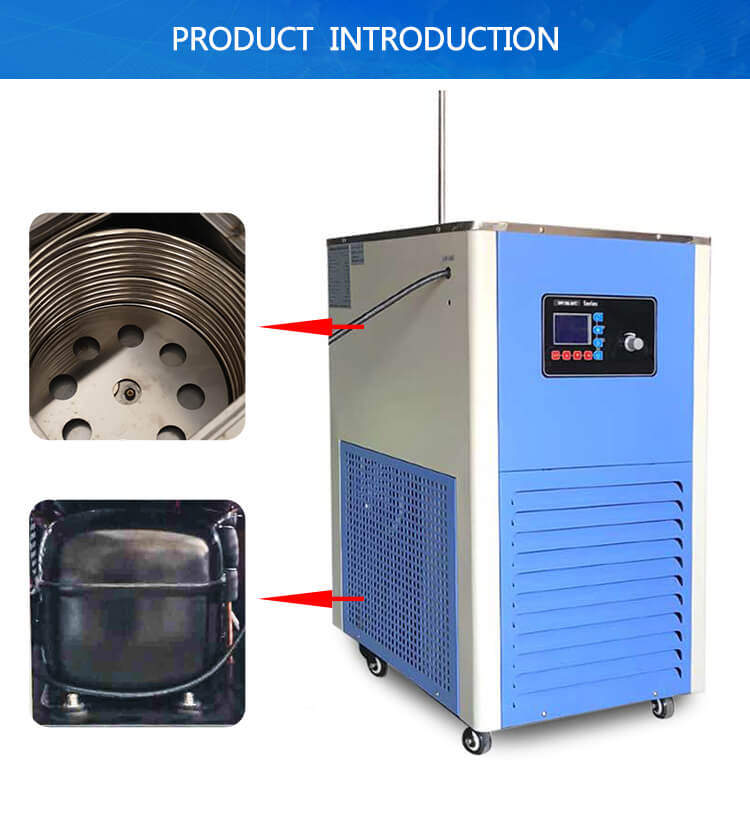
Refrigerated and heated circulating water baths Application:
Refrigerated and heated circulating water baths have a wide range of applications in various scientific fields. Some common applications include:
- Molecular biology: Circulating water baths are commonly used in molecular biology experiments such as PCR, DNA sequencing, and protein analysis. These experiments require precise temperature control to ensure accurate results, and water baths are an ideal tool for this purpose.
- Cell culture: Circulating water baths are used in cell culture experiments to maintain a stable temperature range for growing cells. This is important for maintaining the viability of cells and for ensuring reproducibility of experiments.
- Microbiology: Circulating water baths can be used in microbiology experiments for growing and incubating cultures of bacteria or other microorganisms.
- Biochemistry: Circulating water baths are used in biochemistry experiments such as enzyme assays, protein purification, and chromatography. The precise temperature control provided by these baths is crucial for obtaining accurate results in these experiments.
- Material science: Circulating water baths are also used in material science experiments to control the temperature of materials during various tests, such as tensile strength testing.
Circulating water baths are versatile and widely used in many scientific fields that require precise temperature control. They are an essential tool in many laboratory settings and are instrumental in obtaining reliable and accurate results.
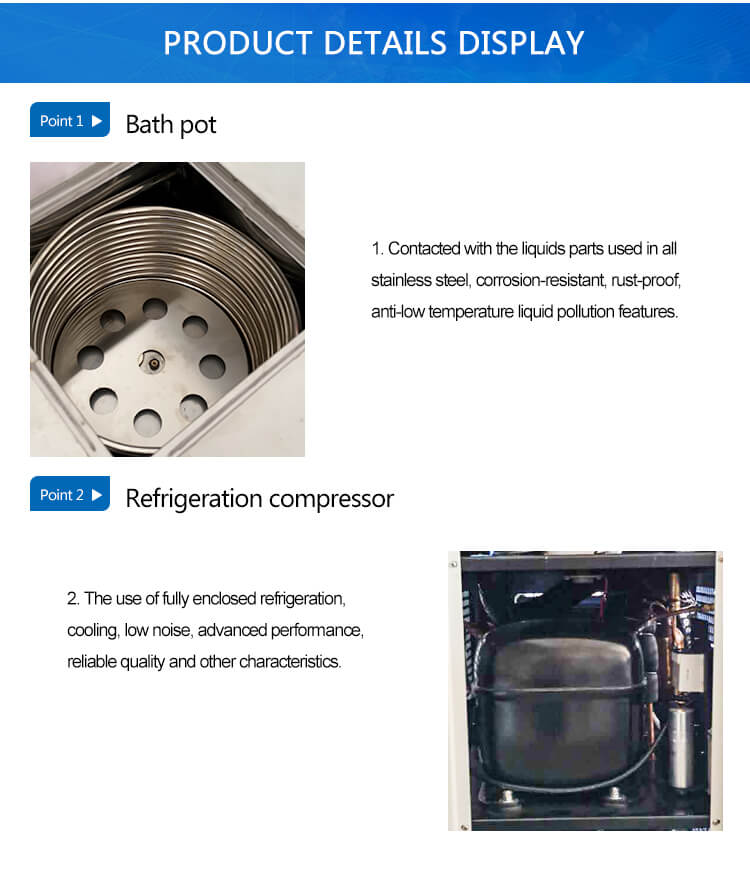
Case : ZZKD Company Selling Refrigerated and heated circulating water baths to an American Customer
ZZKD is a company that specializes in the manufacturing and sale of laboratory equipment. One of the company’s most popular products is the refrigerated and heated circulating water bath. Recently, the company had the opportunity to sell their circulating water bath to a customer based in the United States.
The customer was a research laboratory based in New York that was involved in microbiology research. The laboratory was conducting experiments that required precise temperature control, and the customer was interested in purchasing a high-quality circulating water bath that would meet their needs.

After some discussion with ZZKD’s sales team, the customer decided to purchase a refrigerated and heated circulating water bath from the company. The bath had a temperature range of -20°C to 100°C and a capacity of 20 liters. It also had a programmable temperature controller, which would allow the customer to set custom temperature profiles for their experiments.
The customer was pleased with the customer service provided by ZZKD and the quality of the product. They received the water bath promptly, and it was well-packaged to ensure that it arrived in excellent condition. The customer was also pleased with the product’s performance, as it provided accurate temperature control and was easy to use.
The customer reported that the ZZKD circulating water bath was an excellent addition to their laboratory equipment. It allowed them to perform their experiments with greater precision, and they appreciated the flexibility provided by the programmable temperature controller. They also noted that the bath was durable and well-made, and they expected it to last for many years.
Overall, the customer was very satisfied with their purchase from ZZKD. They found the company to be professional and easy to work with, and they appreciated the high quality of the product they received. The circulating water bath was an essential tool in their laboratory, and they would recommend it to other researchers looking for a reliable and accurate temperature control system.

